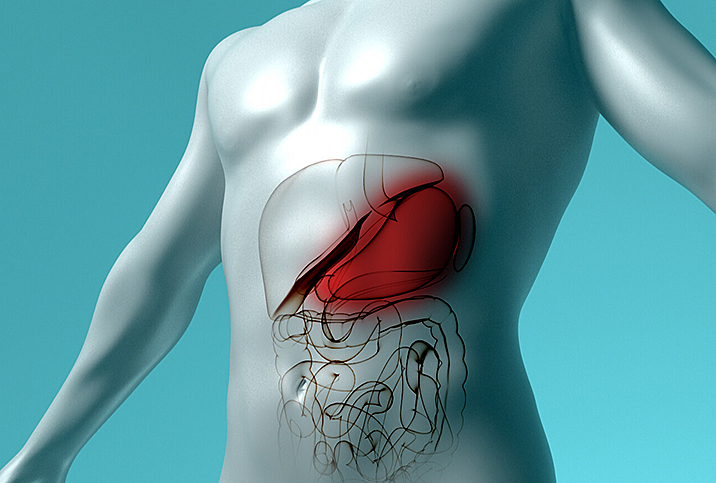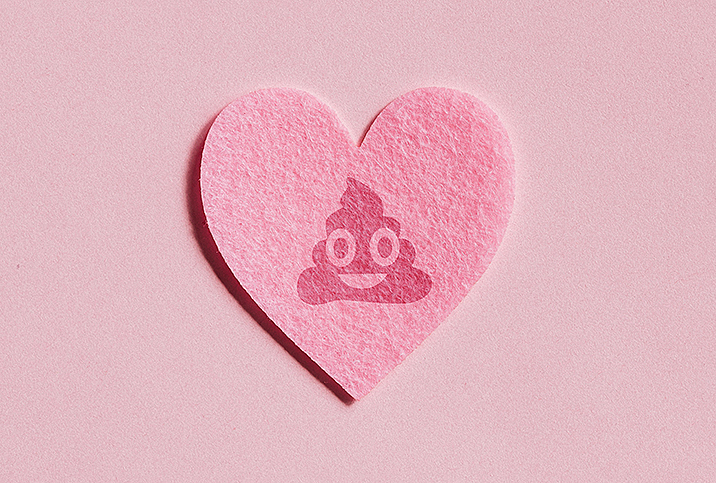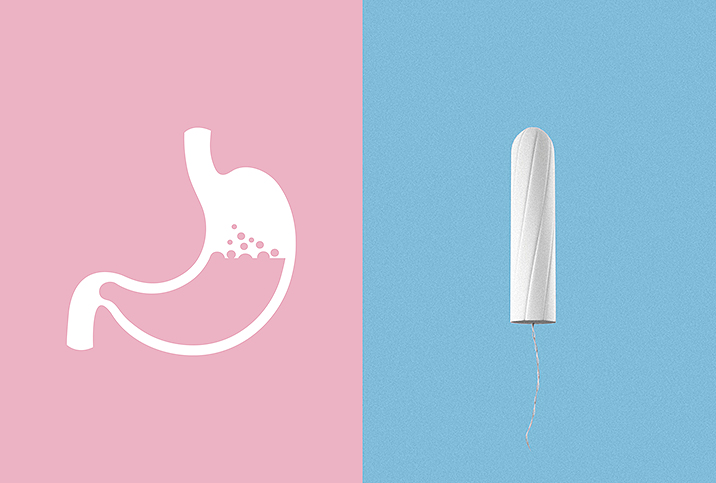IBS and IBD: A Gut Punch to Your Sex Life

Until you’ve suffered from chronic intestinal conditions, you can’t imagine the effect they can have on both your desire for romance and your ability to engage in sex. The good news is that research has been conducted on this struggle and you are not at the mercy of your gastrointestinal system.
Common intestinal disorders
Two of the most common intestinal disorders are irritable bowel syndrome (IBS) and inflammatory bowel disease (IBD). Despite names and symptoms that are similar, the conditions are notably different.
Irritable bowel syndrome
People with IBS experience abdominal pain, cramping, bloating, gas and changes to their bowel movements. Most commonly caused by food poisoning, irritable bowel syndrome can be triggered by anxiety, stress, certain foods, infections and changes in gut microbes. Between 25 million and 45 million people in the United States, two-thirds of them women, suffer from IBS. Treatments for irritable bowel syndrome include antibiotics, antidiarrheals and/or laxatives, and dietary changes. IBS often goes undiagnosed for a long period of time, because many sufferers experience vague symptoms that are only mild to moderate.
Inflammatory bowel disease
IBD is the umbrella term for intestinal conditions that result in chronic inflammation of the intestinal tract. The two most prevalent types are Crohn’s disease and ulcerative colitis, both of which are believed to have a genetic factor. Inflammatory bowel disease can also be the result of an autoimmune response, which can occur when your body’s immune system falsely recognizes a normal process as abnormal, and sounds an alarm that triggers an inflammatory response.
At least 1.6 million Americans are living with IBD, the symptoms of which include diarrhea, blood in the stool, stomach pain, cramping, bloating, appetite and weight loss, and anemia. Inflammatory bowel disease can cause a number of more serious problems, including malnutrition, intestinal rupture, bowel obstruction and fistulas.
The big difference between the two conditions is IBD, unlike IBS, is a chronic condition and therefore requires lifelong treatment. Treatments include medications, supplements (especially iron for anemia), lifestyle changes such as avoiding dairy, reducing stress and exercising.
A more serious solution may include surgery to excise a fistula or remove an affected area of the colon or rectum.
Impact on sex life
Anyone with digestive issues knows they don’t feel particularly sexy. Many sufferers worry about pooping during sex. Others experience pain or fatigue and aren’t really even thinking of sex in the first place. Sufferers may be scared to share the truth about their condition, or overthink a potential partner’s reaction to an ostomy bag. These fears may cause someone to avoid sexual activity altogether.
Men with IBD can have difficulty getting an erection and/or ejaculating, and may experience hypogonadism (testosterone deficiency). To make matters worse, certain medications prescribed for treatment of inflammatory bowel disease can actually lower your libido.
What you can do
Obtaining a definitive diagnosis is essential to finding effective treatment, so consult a doctor and/or a specialist.
If you have already been diagnosed, discuss the condition’s effect on your sex life with your physician (or a sex therapist), who can tweak meds to reduce symptoms and/or suggest lifestyle changes that could help. A good idea is to keep a diary of your symptoms and what triggers a bad spell. Also, note actions or measures that help prevent or reduce symptoms. Even home remedies—like focusing on other sensual acts that are non-penetrative if you’re experiencing pain during intercourse—should be noted for future discussions with your healthcare provider, especially if they work.
If your condition required surgery and you have a collection bag, know what to do if it breaks, and be sure to empty it before you have sex. If the bag makes you feel less desirable (even though you’re as attractive as anyone else!), consider wearing a loose T-shirt or a sexy garment that covers it up.
Men who are struggling with erectile or ejaculation issues related to IBD or its treatments should discuss it with their doctor. If you’re dating or in a new relationship, don’t freak out about telling a potential partner. In fact, telling them early rather than later may help reduce stress. Stay lighthearted and confident, and then move on.
If you’re in a long-term relationship, a partner can be a source of support and help you strategize ways to make dates and sexy evenings symptom-free. They’ll also be more understanding and won’t take it personally if you’re suddenly not in the mood.
IBS and IBD are both physically and emotionally painful. Use your resources, strategize with your physician, and include your partner or supportive friends and family members. You’ll be more confident about getting on with your love life.


















